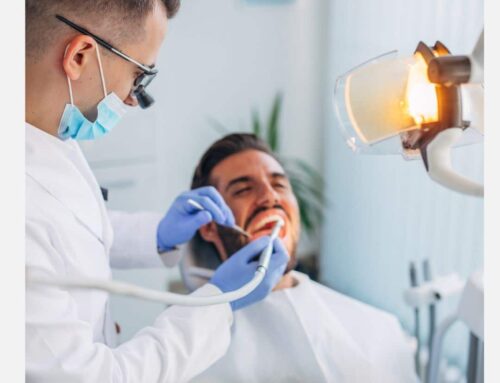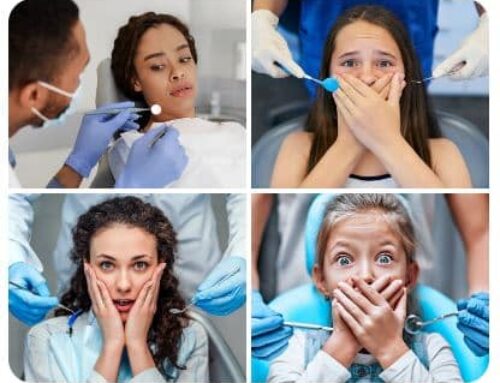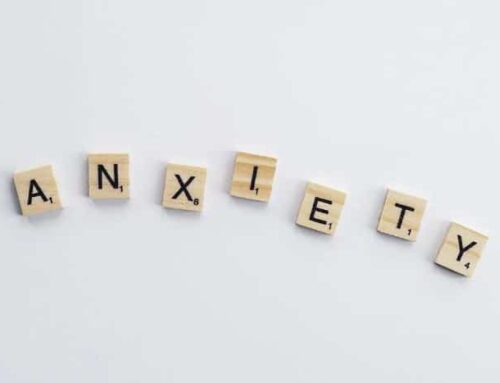Emergency Dental Care: Understanding the Basics
Dental emergencies are situations where immediate action is needed to address severe dental issues. “Stop dental disasters in their tracks—know what to do in a dental emergency!” Understanding what constitutes a dental emergency is key to taking appropriate and timely action for treatment.
What Constitutes a Dental Emergency?
A dental emergency is any oral health issue that requires immediate attention. Here are some common scenarios:
- Knocked Out Tooth: If a tooth is accidentally knocked out, it’s crucial to seek immediate dental care to increase the chance of saving the tooth.
- Cracked or Broken Tooth: A tooth that’s cracked or broken, especially if causing pain, needs urgent attention to prevent further damage.
- Dental Abscesses: An abscess is a severe infection that can be life-threatening if left untreated. Prompt treatment is necessary to prevent the spread of infection.
- Lost Filling or Crown: A lost filling or crown can expose sensitive areas of the tooth, leading to pain and further damage.
- Severe Toothache: Intense pain indicates a serious problem that shouldn’t be ignored.
- Significant Bleeding: Oral bleeding following an injury requires immediate attention to control the bleeding and treat the cause.
- Swelling in Jaw or Mouth Area: This could indicate an infection or other serious condition that needs rapid intervention.
Recognizing the Signs of a Dental Emergency

Dental emergencies can manifest in various forms, including a knocked out tooth, cracked or broken teeth, or severe toothache. Understanding these signs is essential for prompt action. Recognizing these signs can help in quickly identifying a dental emergency:
Pain: Sharp or persistent toothache indicates a problem.
Swelling: Swelling in the mouth or facial area can be a sign of infection.
Bleeding: Continuous bleeding from the mouth is a clear signal for urgent care.
Loose Teeth: Adult teeth should never feel loose. This is a red flag.
Gum Abscesses: Swollen, pus-filled gums indicate an abscess.
Trauma: Injury to the mouth, jaw, or teeth, especially if it results in loss or damage of teeth.
The Importance of Prompt Dental Care
Timely dental care is critical in a dental emergency. Delays can lead to serious complications, making the situation harder to manage. Immediate dental care is essential for these reasons:
- Prevent Further Damage: Timely treatment can prevent more severe problems.
- Alleviate Pain: Emergency dental care can provide rapid relief from severe pain.
- Reduce Risk of Infection: Quick treatment reduces the risk of infections spreading.
- Save Teeth: Immediate action increases the likelihood of saving damaged or knocked out teeth.
- Peace of Mind: Knowing that you’re getting the right care promptly can alleviate anxiety and stress associated with dental emergencies.
Common Dental Emergencies and Their First Aid Measures
Addressing a dental emergency efficiently can often make a significant difference in the outcome. Here are some common emergencies and first aid measures:
Knocked Out Tooth
- Immediate Action: Pick up the tooth by the crown, not the root. Rinse it gently without scrubbing.
- Preservation: Attempt to reinsert it into the socket. If not possible, keep it moist in milk or saliva.
- Cold Compress: Apply to your cheek to reduce swelling.
Cracked or Broken Tooth
- Rinsing: Immediately rinse your mouth with warm water.
- Cold Compress: Apply to the face to minimize swelling.
- Temporary Protection: Use dental cement if available to cover sharp edges.
Dental Abscesses
- Saltwater Rinse: Rinse your mouth with a mild saltwater solution to ease pain and draw out the infection.
- Avoid Delay: Contact a dentist immediately as abscesses can spread infection to other body parts.
Lost Filling or Crown
- Temporary Fix: Use dental cement or sugar-free gum to fill the cavity temporarily.
- Avoid Pressure: Chew on the opposite side until you get professional help.
Severe Toothache
- Clean the Area: Rinse the mouth with warm water. Gently use dental floss to remove any trapped food.
- Cold Pack: Apply to the outside of your mouth or cheek.
Bleeding After a Tooth Extraction
- Pressure Application: Bite on a piece of gauze to control bleeding.
- Avoid Suction: Don’t use a straw or spit vigorously as it can dislodge the blood clot.
Injury to Soft Tissues
-
- Rinse and Assess: Rinse with a mild saltwater solution and gently inspect the area.
- Cold Compress: Apply to reduce bleeding and swelling.
Seeking Professional Dental Care for Dental Emergencies
- Emergency Dental Appointment
In any dental emergency, contact an emergency dentist or dental clinic immediately. The chance of saving a tooth or effectively treating an injury decreases as time passes.
- Emergency Room vs. Emergency Dentist
For most dental emergencies, a specialized emergency dentist is the best choice. However, if there are life-threatening symptoms such as severe bleeding or trauma to the face, head to the emergency room first.
- Preventive Measures to Minimize Dental Emergencies
Regular dental check-ups, proper oral hygiene, and wearing protective gear during sports can significantly reduce the risk of dental emergencies.
Emergency Dental Care: FAQs
In this section, we address frequently asked questions about handling dental emergencies. Here are additional items to ensure comprehensive coverage:
- 1.What should I do if I have a cracked or broken tooth?
- Answer: Immediately rinse your mouth with warm water to clean the area. Apply a cold compress to the outside of your mouth to reduce swelling. Avoid using the tooth until you can get professional care. If there’s pain, temporary dental cement can be applied to the affected tooth.
- 2. How do I manage a knocked out tooth?
- Answer: Handle the tooth by the crown, not the root. Rinse it gently with milk or saliva without scrubbing. If possible, reinsert it into the socket. If not, keep it moist in milk or saliva. Contact your dentist immediately as the chance of saving the tooth decreases with time.
- 3. What should I do in case of a dental abscess?
- Answer: Rinse your mouth with a mild saltwater solution several times a day. This helps in reducing pain and drawing the pus to the surface. However, don’t delay seeking professional dental care as abscesses can lead to serious complications if left untreated.
- 4. I’ve lost a filling or crown. What should I do until I can see the dentist?
- Answer: If a filling or crown falls out, keep the area as clean as possible. Use dental cement as a temporary measure if the area is sensitive. Avoid chewing on the affected side and contact your dentist as soon as possible.
- 5. Can I take painkillers for dental pain before visiting the dentist?
- Answer: Over-the-counter pain relievers can help manage pain temporarily. However, they are not a solution. Avoid applying aspirin directly to your gums as this can burn the gum tissue.
- 6. Should I go to the emergency room or an emergency dentist for dental emergencies?
- Answer: For most dental emergencies, like a cracked tooth or abscess, it’s best to see an emergency dentist. They are specifically equipped to handle dental issues. However, if you have severe injuries, such as significant facial trauma or uncontrollable bleeding, visit the emergency room first.
Road Dental: Your Trusted Partner in Dental Emergencies
At Road Dental in Greenslopes, Brisbane, we are acutely aware of the distress and urgency that dental emergencies bring. Our experienced team is dedicated to providing swift, empathetic, and effective care in these critical situations. Understanding that each moment counts in a dental emergency, we are prepared to offer immediate assistance and expert guidance.
In case of a knocked out tooth, our prompt intervention can significantly increase the chance of saving the tooth. For those suffering from a cracked or broken tooth, our state-of-the-art facilities and skilled professionals are equipped to provide the necessary care, minimizing discomfort and preventing further damage.
Dental abscesses, a severe and potentially dangerous condition, are treated with the urgency they demand at our clinic. We understand the critical nature of these infections and are adept at providing the necessary interventions to prevent complications.
For emergencies like a lost filling or crown, our team is ready to offer temporary solutions such as dental cement and arrange for permanent repairs as soon as possible. We recognize the discomfort and potential for further damage that these situations can cause and are committed to addressing them promptly.
We also specialize in handling severe toothaches and significant oral bleeding with the care and speed required to alleviate pain and control bleeding effectively.
Moreover, our emergency services are not just about treating the immediate problem; they are about ensuring your overall oral health and peace of mind. We provide comprehensive post-treatment care and advice to prevent future dental emergencies and maintain long-term dental health.
Remember, in a dental crisis, delaying treatment can lead to more severe complications. Our team at Road Dental is ready to support you through these challenging times with compassionate and expert care. For any dental emergencies, contact us immediately at (07) 3397 3999. Let us be your first call in maintaining your oral health and ensuring your wellbeing.







Leave a Comment